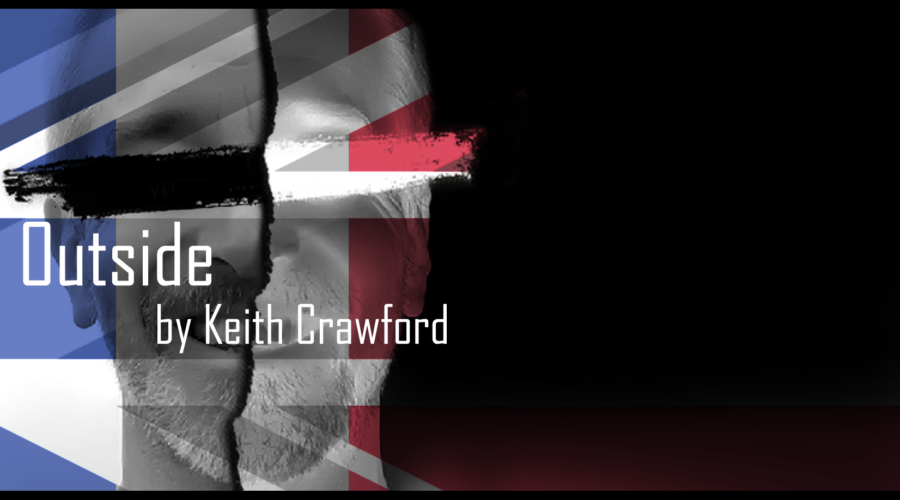A desperate band of survivors shelter in a bunker from the toxic wasteland outside, struggling to keep their equipment working and themselves alive. Then someone, or something, knocks on the door.
Nancy – Jolaine Beal
Michelle – Sonia Backers
Laura – Marie Kline
John – Damian Corcoran
Written by Keith Crawford
This was written as a stage play for an exercise in the Aaron Sorkin Masterclass. The Masterclass series are really very expensive if you’re making your living from writing, but I learned a great deal and it was money well spent. It helps that I am one of the legions of fans of Aaron Sorkin’s work. Sorkin has two qualities that I’d like to highlight. First, of course, is his dialogue. It is snappy, funny, and poetic. He makes character shine through his words, and he has a deep knowledge of rhetoric as a precise art (as oppose to my ‘throw everything at the wall and see what sticks approach.) If you ask around for who writes the best dialogue in showbusiness, you know his name will come up.
Second, he is never afraid to have characters talk, walk or act themselves into trouble of their own making, and then make them suffer for it. He’s an American idealist (I imagine that must cause some cognitive dissonance here in 2023), but his love and admiration for his characters makes them deeply empathetic and the drama intense when he has someone you now care deeply about do something catastrophically dumb. This is in part due to an apparent obsession with Aristotle’s Poetics (which is an important read but, I mean, seriously, better writing about writing has been written in the millennia since Aristotle did his thing) – as Sorkin paraphrases it, have your characters get stuck up a tree, then throw stones at them.
Mentioning the poetics reminds me of a technique Sorkin uses (and you can use to) that really bugs me – he is very good at making characters look intelligent by having them recite important quotes from memory. Now citing Aristotle doesn’t make you intelligent, and true intelligence has little to do with the capacity to memorise things – but as a writing trick it totally works, and I have stolen it.
So, is Outside a snappy political thriller about good people struggling to do good things? Nope, not at all. I’m Franco-British. Outside is a one set horror story about people struggling just to cope when confronted with problems far beyond their capacity. Call it European idealism if you like: everything is shit, and when you die it will be your fault despite the powers that cause it being forever beyond your power to influence!
I mentioned the one-set thing because, having directed and produced a fair few pieces of new theatre, I know that for practical purposes not having to change much in the set saves you lots of cash and effort. I also wanted to emphasise the physicality of the story: there are computers to work, levers to turn, engines that break, and a heavy and surprisingly dangerous door. When I direct stage work, I like my characters to be in almost constant motion (to make it poignant when they stop, if nothing else.) I had a deeply visual approach to writing this play for a course written by a man famous for his dialogue. Who says I can’t write to a brief!
Evidently this created some issues when we decided to turn it into a radio play – the first radio play we produced from an original script (as later with Mine, I wanted to learn to record plays with my own writing before risking someone else’s baby.) It would be absolutely correct to say this was a recording where I made many mistakes from which I profited later. The mics weren’t perfectly set up, I didn’t take enough time to do second takes, there was a casting problem (which was entirely my fault), etc., etc.
Thankfully, as is so often the case, I was rescued by my fabulous actor who managed to convey the growing tension and fear as, well, they get stones thrown at them. Even more importantly (sorry actors) was the amazing work of Chris Taylor on the sound editing. He managed to pull together some inadequate sections of voice recording so that the worked, and did such a brilliant job with the SFX that what I had imagined as a visual piece produce a wonderful soundscape.
So, Outside. A play I wrote that I actually enjoy listening to. A play that I believe succeeded, in spite of my best efforts to make it fail. A properly enjoyable horror story with a great ensemble performance. I’m terribly proud of this one, because it made me realise that making audio-drama is a team effort, and that with a great team you can make almost anything shine!



